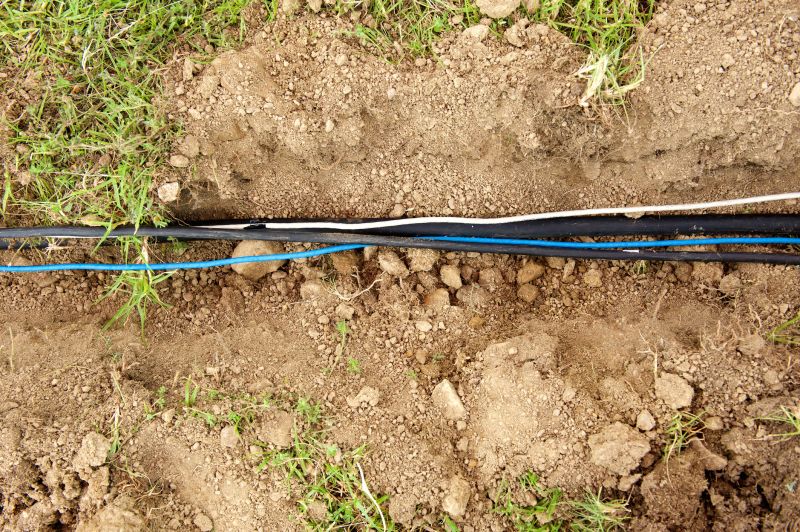Popular Trench Digging Gear for Safe and Efficient Excavations
Identify the most trusted trench digging gear that prioritizes safety, comfort, and productivity for all excavation tasks.
 When undertaking trench digging, selecting the right tools and products can significantly influence the efficiency and safety of the project. From manual hand tools to powered equipment, there is a wide array of options designed to cater to different project sizes and complexities. Properly equipped, users can achieve cleaner cuts, more precise depths, and safer working conditions. Whether for gardening, utility installations, or construction tasks, understanding the available products helps in making informed choices tailored to specific needs.
When undertaking trench digging, selecting the right tools and products can significantly influence the efficiency and safety of the project. From manual hand tools to powered equipment, there is a wide array of options designed to cater to different project sizes and complexities. Properly equipped, users can achieve cleaner cuts, more precise depths, and safer working conditions. Whether for gardening, utility installations, or construction tasks, understanding the available products helps in making informed choices tailored to specific needs.
Types of Products For Trench Diggings
Manual Trenching Shovels
Lightweight tools ideal for small-scale or precise trenching tasks, requiring no power source.
Powered Trenchers
Motorized machines that can quickly cut through soil and turf, suitable for larger projects.
Mini Excavators
Compact excavators that provide versatility and power for various trenching needs.
Post Hole Diggers
Specialized tools for creating deep, narrow holes often used for fencing or utility poles.
Trenching Blades and Attachments
Interchangeable blades and attachments for existing equipment to customize trenching capabilities.
Safety Barriers and Shoring Systems
Devices designed to support trench walls and ensure worker safety during excavation.
Handheld Power Augers
Portable augers that assist in creating small trenches or holes with minimal effort.
Trenching Rakes
Tools for leveling and cleaning trench beds after digging.
Soil Compactors
Equipment used to compact soil within trenches for stability and safety.
Utility Trowels
Small, precise tools for detailed trench work and finishing touches.
Popular Choices
Battery-powered trenching tools offering mobility and convenience for various projects.
Self-propelled machines suitable for medium to large trenching tasks with minimal manual effort.
Compact excavators equipped with different attachments for versatile trenching solutions.
Hand tools favored for small-scale tasks and precise hole digging.
Robust augers designed for deep and challenging soil conditions.
Comprehensive sets including shoring, barriers, and signage for safe trenching operations.
Attachments for existing equipment to expand their trenching capabilities.
Tools to assess soil conditions before trenching to determine suitable equipment and methods.
Portable compactors used to prepare trench beds and surrounding soil.
Specialized tools for laying and securing drainage pipes within trenches.
Manual tools such as trenching shovels and spades are essential for small-scale projects or areas requiring delicate handling. These tools are lightweight, easy to maneuver, and require no power source, making them ideal for precise work in tight spaces. For larger or more demanding projects, powered trenchers and compact excavators can significantly reduce labor time and effort. These machines come in various sizes and capacities, suitable for everything from residential landscaping to professional construction sites.
Safety equipment and accessories also play a crucial role in trench digging. Protective gear such as helmets, gloves, and sturdy footwear help prevent injuries. Additionally, accessories like trench shoring systems and safety barriers ensure the stability of trench walls and protect workers from collapses. Investing in quality products not only enhances safety but also improves productivity by minimizing delays caused by accidents or equipment failures.
Key Buying Considerations
- Project scale and trench dimensions to determine the appropriate equipment size and power.
- Soil type and conditions, which influence the choice of manual versus powered tools.
- Frequency of use, to evaluate whether investing in durable machinery is worthwhile.
- Portability and storage space for equipment, especially for smaller projects or limited areas.
- Ease of operation and user comfort, particularly for manual tools or less experienced users.
- Safety features such as wall shoring, barriers, and emergency shut-offs.
- Depth and width capabilities of trenching equipment to meet project specifications.
- Power source preferences, including electric, battery, or gas-powered options.
- Budget constraints and overall cost of equipment, maintenance, and accessories.
- Availability of attachments and accessories for versatility and future project needs.
- Environmental conditions, like moisture levels and soil stability, affecting equipment choice.
- Local regulations and safety standards that may influence equipment selection.
- Brand reputation and availability of customer support or warranty services.
- Compatibility with existing tools or machinery to optimize workflow.
- Ease of transportation and setup, especially for mobile or remote projects.
